Frequently Asked Questions
How can we be sure that we are making the best choices for our children?
Choosing the right school depends on a variety of factors such as abilities, interests, needs, learning styles, motivation and maturity. One size does not fit all. In many cases parents are overwhelmed with the number of options and unsure of which direction they should turn. This is where an experienced educational consultant becomes invaluable.
How do you know how to solve this puzzle?
Solving the puzzle of choosing the right school is a highly individualized process. The first step is to get to know as much as possible about YOUR child. By putting together the pieces, gathering information and sometimes digging deeper if necessary, we work with families to determine the type of educational setting in which your child will have the best chance for success. Our recommendations are based on our experience in the classroom setting, working with hundreds of parents in the diplomatic service and private sector, and years of education and training. It also takes thorough knowledge of the players, admissions offices, changes in the world of schools and colleges, and experience from other cases.
But it also takes travel. Most consultants travel 20-30% of the time. We visit over 100 colleges, schools, and programs a year. That’s a lot of time on the road and in the air, but it’s the best way to really get the feel for a school.
How can you work with my family if we live in a different country or region?
We work very effectively with families around the world via email, Skype, online chats, video conference calls, text messages, and telephone every day. By listening closely and gaining a better understanding of the student’s and the family’s situation, we forge close and trusting relationships and make a successful placement for the student. Please see our world map under “Students” to see how far our global reach is and just how well it works!
How can you work with my family if you travel a lot?
Traveling is a requirement of the job so that we continue to learn and do site visits. As long as we have mobile phone and Internet connections, we work wherever we go. Office records are electronic and therefore accessible 24/7. Most clients find that unless we are sleeping, they get an answer to a question within hours. Clients can always find us.
Why did you hire an educational consultant to do college counseling for your own child?
Because she wasn’t ME! I’m a parent, too, and I guided my first two through the college application process. First of all, I didn’t know as much then as I know now, and I really wish I had. I might have avoided some mistakes, too. Secondly, every time we brought up the “C” word (for college) around our house, the conversation would inevitably go downhill. I wanted to shout, “The train is coming down the tracks!” and my kids’ response was something like, “Yeah, I know. But I don’t need to move yet. It’s not close enough.”
If you have a teenager at home, you get the jist of the story. My kids did not want my well-intentioned expertise. This is a time in a teenager’s life when they want to do their own thing – yes, they need you, and always will, but they are also declaring their own independence. Therefore, they may not always be ready and willing to listen to you – even if you are right!
Also, I realized that an objective, wise, experienced outside third party could calm the waters. My daughter loved to hear what her consultant had to say and took it to heart. When she made suggestions about my daughter’s essays, my daughter was receptive. When I made suggestions about her essays, it was taken as criticism. When I wanted to be sure things were getting done, I was a nag. When the consultant asked my daughter, she was seen as a coach. Having a consultant saved us a lot of wear and tear on our own relationship.
That’s why by the time my third child was ready for college, I couldn’t reach for my checkbook fast enough and I hired a consultant, too!
I still don’t see why I need a consultant. There are so many “how-to” books and sites on the Internet, we can do this by ourselves.
That’s true. There is an explosion of information on the Internet. However, this analogy is apropos. A fastidious homeowner special orders hand-painted tiles from Europe for the kitchen. Each tile is one of a kind and hand painted. After months of planning, shopping, and waiting, the shipment finally arrives. There are just enough tiles to do the job. So the fastidious homeowner’s spouse says, “I’m not going to hire a professional tile tradesman. I picked up this book at the bookstore and found a great Internet site that tells me how to install them. I can save money this way.” True, but if the tile is cut improperly and breaks, it’s not so easy to replace.
The same holds true for your child when they are looking at a new school, especially a boarding school, therapeutic program, or college/university. The financial investment you are about to make in their education is huge, and the “merchandise” is precious. Working with a master craftsman when it comes to molding a child’s education is an investment in the future. This is when you want to “get it right” and not “learn by doing.”
But what about my child’s high school counselor? Why would we need an educational consultant?
We have huge respect for high school guidance counselors. First of all, we assume that they went into the profession because they care about students and therefore have good intentions. But we have also worked in both private and public school settings, and we can tell you that school counselors are overworked and underpaid! Their responsibilities are many, and their case load is usually big – it’s not unusual for public schools counselors to have over 300 students on their docket. In addition to providing college counseling, they are also involved in class scheduling, coordinating special visits and programs, providing counseling and crisis intervention on the spot, dealing with parental and student problems and concerns, and then they often are tasked with other duties such as test proctoring and supervising lunch, halls, dismissal, etc. It can be a challenge to keep up with every day demands. Therefore, despite their willingness and best intentions, finding time for frequent and lengthy conversations with students about college is difficult. There just aren’t enough hours in the day. They rarely get to leave school for conferences or college visits. Counselors overseas find it especially hard to travel for college visits during the school year.
So in hiring an educational consultant to help guide your child’s college application process, it’s not a vote of “no confidence” in the school counselor. Rather, it is an acknowledgment that your family would like more time and expertise than they may be able to provide.
I pride myself on maintaining healthy relationships with school counselors whenever possible. The process works best when we can work together as a team.
How is an educational consultant compensated?
The consultant is paid by the family and never receives compensation from any school or program. IECA consultants are bound by a strict code of ethics in order to ensure that the needs of the child and family are upheld with full objectivity. When working with a Certified Educational Planner and a member of IECA, a family can be confident in knowing that their child is in the hands of a caring, experienced professional.
Could we really afford your services?
Can you really afford not to use our services? The most expensive decision is a school or university that does not work out. Some families have special educational needs, others have never searched for a private school or college, and are unfamiliar with the vocabulary or know what questions they should be asking. Many families have never heard of an educational consultant and try to figure it out by themselves over the Internet – and then call RNG when things didn’t work out as planned.
Our clients include families of all economic backgrounds. Some are U.S. government employees, single parents, educators, or come from everything from small family owned businesses to global businesses. Some families get help paying for fees, others pay out of pocket. We try to keep the fees affordable. Most services are packaged as a flat fee for service. Making a successful placement, or guiding a student through the college application process, is extremely time and labor intensive. It is based on a relationship. If the family is worried about contacting the consultant because of concerns about getting a bill each time they call or write, then the relationship will not flourish. This is not in the best interest of the child or student.
But to do this kind of work is also more involved than one might imagine. The consultant must engage in continuous professional development, travel to visit schools, programs, and colleges, attend conferences, purchase resource books, and pay for professional membership fees. We do the legwork and travel that eventually can save a family money by focusing their attention on viable options. We often save people our entire fee just by redirecting their travel plans to visit schools that will be more appropriate versus the “wild goose chase” they would have been on. Our goal is to do the work behind the scenes to save time, money, stress, and anxiety for you. If we can make it look easy, then we have done our jobs correctly.
If someone offers to do this for next to nothing, or free, then question the professionalism or source of funding. The “consultant” might really be an agent who is paid by the school, program, or university.
Lastly, a dad recently called after a enrolling his son in a boarding school that didn’t work out. Our experience could have saved the family that grief, since we knew some things about the appropriateness of that school that he didn’t. He had to get on an airplane and pick his son up in the middle of the term. Not only was the school term lost, but tuition, moving expenses, and extra travel greatly increased the cost to the family. Worst of all, the student felt unsuccessful because it didn’t work out, but it wasn’t the right placement from the beginning. A consultant can save you heartache, and is an investment in your child.
The city we’re moving to has an American school…. do we really need to do any other research?
There are many factors to consider. First of all, what kind of American school is it? Is it truly an American school, or pseudo American school? Do they have waiting lists? Do they accommodate special needs children? Do they have the course offerings your child needs? Who are the teachers, and what is their training? Do they teach the way your child learns? What is the philosophy of the school? These are just a few of the many questions a family needs to investigate before assuming anything. The help of an experienced consultant is worth their weight in gold.
My child has terrible grades. I don’t think he’ll ever go to college!
There are multiple factors to this scenario, and every case is as different as snowflakes. However, there should be a future for everyone. Maybe it’s college, and there is a college for almost everyone. Or maybe the adolescent needs to pursue other options. But all young people deserve a future. Let us help to figure it out.
I’m not sure that I want our children in a school in our new location…. but I don’t know anything about boarding schools! Where do I start?
Your children are the most important thing in the world to you. Deciding on boarding school as an option is always difficult and usually emotionally charged because the adolescent is still young. I know – I have been through it myself. The most important factor is to find a place where the child will not only learn how she/he learns best and find academic challenge, but also find a home away from home. The school culture needs to match that of the family and student. That kind of information is almost impossible to find on the Internet or from a view book. An educational consultant with his/her ear to the ground, who is networked in, and who travels constantly, can give you the inside scoop you need.
What other issues can you help with?
- College applications
- Children with learning differences
- High school graduation requirements
- Choosing high school programs
- Transition issues for Third Culture Kids
- Cultural adjustment
- Evacuations and separated tours
- Gifted and talented (GT) kids and programs
- Family separations
- Presentations and Workshops
- Career exploration
- Summer programs
- Struggling teens
- Customized services available upon request
For more information about any of our services, contact us.










